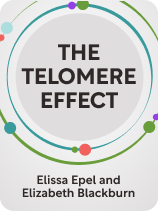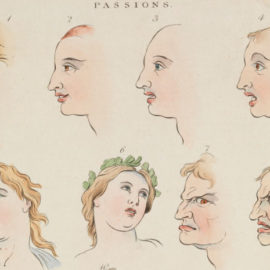

This article is an excerpt from the Shortform book guide to "The Telomere Effect" by Elissa Epel and Elizabeth Blackburn. Shortform has the world's best summaries and analyses of books you should be reading.
Like this article? Sign up for a free trial here.
Why does stress make you age? How does social isolation cause stress?
Elizabeth Blackburn and Elissa Epel say that aside from physical factors (like injuries and pollutants), stress also causes your telomeres to shorten more quickly. In short, chronic stress makes you age faster.
Let’s further look at the relationship between stress and telomeres below.
Chronic Stress Damages Your Telomeres
Aging faster from stress is a side effect of the “fight or flight response”: When you’re feeling stressed or upset, your body prepares you for action—your heart beats faster, your blood pressure rises, and you release the stress hormones cortisol and epinephrine. All of this gives you a burst of energy and strength so that you can overcome danger or escape from it. However, it also puts a great deal of strain on your body, meaning your cells have to divide more quickly in order to fix the damage.
We’ll explore some of the ways that your habitual thought patterns may be causing you—and your telomeres—unnecessary stress. Then we’ll discuss the unexpectedly large impact that social isolation can have on your well-being. Finally, as a partial counterpoint, we’ll briefly discuss the authors’ explanation of how short-term stress can actually improve your health rather than damaging it.
| Further Effects of Chronic Stress Blackburn and Epel’s ideas are novel in that they tie the effects of stress to telomere length—however, it was already well-known that long-term stress can have a myriad of negative effects on both mental and physical well-being. Here are just a few of those potential effects: 1. Cardiovascular problems: Chronic stress can lead to high blood pressure, increased risk of heart disease, and an elevated risk of stroke. 2. Digestive issues: Stress can cause or exacerbate problems such as irritable bowel syndrome (IBS), ulcers, and acid reflux. 3. Sleep disturbances: Stress can disrupt sleep patterns, leading to insomnia or poor sleep quality, which can further exacerbate health issues. 4. Mental health problems: Chronic stress can contribute to or worsen conditions such as anxiety disorders, depression, and mood disorders. 5. Cognitive impairment: Persistent stress can affect memory, concentration, and decision-making abilities. 6. Headaches and muscle tension: Chronic stress can cause frequent headaches, migraines, and muscle tension or pain. |
Negative Thinking Creates Stress
Blackburn and Epel say that a great deal of preventable stress comes from getting yourself stuck in negative thought patterns. So, if you find yourself slipping into any of the following mental habits or perspectives, you might unintentionally be damaging your telomeres.
The authors’ solution to these negative thought patterns is resilient thinking, which we’ll discuss later.
Negative Thought Pattern #1: Pessimism
Blackburn and Epel say that pessimism—always expecting the worst possible thing to happen—is an unfortunately common and harmful way to think. For instance, perhaps you always anticipate failure or disaster as a form of self-protection; you might believe that it’s better to expect the worst than to be caught off-guard. However, this way of thinking leads to chronic stress, and therefore it’s most likely damaging your telomeres more than it’s protecting you.
A closely related thought pattern is cynicism: Cynicism is like pessimism, but it specifically means that you always expect the worst from other people. Cynical people are distrustful, quick to anger, and prone to overreactions. If you tend to be hostile toward others or assume that everyone else is untrustworthy, you’re probably stuck in cynical thought patterns—and putting yourself through a lot of unnecessary stress as a result.
Negative Thought Pattern #2: Rumination
Another harmful thought pattern the authors discuss is rumination: circular thinking where you go over the same stressful thoughts again and again, without reaching any solution. This thought pattern is common when, for instance, you find that you can’t stop thinking about some mistake you made or an embarrassing situation you found yourself in.
Unfortunately, trying to suppress those thoughts—burying them with constant distractions or pushing them away through sheer force of will—is equally stressful, and thus equally damaging to your telomeres.
Negative Thought Pattern #3: Worrying
Finally, Blackburn and Epel say that some people suffer more from the fear of stress than from actual stressful events—in other words, they worry too much.
Therefore, the authors urge you to consider the way you think about stress. If you tend to get anxious at the mere thought of difficulty or discomfort before anything stressful happens, odds are good that you’re worrying away your telomeres.
Social Isolation Creates Stress
Scientists have known for many years that social isolation causes people a great deal of stress—for instance, that’s why solitary confinement is a common punishment for prisoners. However, Blackburn and Epel say that the damaging effects of loneliness and rejection reach far beyond emotional distress, with scientific research spotlighting how these social ailments can meddle with the health of our telomeres. This occurs because everyone has an inherent need for love and connection with others—in fact, loneliness and rejection trigger the fight-or-flight response just as if you were in physical danger. As we’ve said before, this shortens your telomeres unusually quickly.
The authors add that this effect is especially noticeable among two vulnerable groups: children and minorities.
Children who are isolated from their peers undergo chronic stress during a crucial developmental period. In fact, studies have shown that children who experience this and other traumas (such as from abusive parents) have significantly shorter telomeres than children raised in healthy, nurturing environments. Furthermore, these shorter telomeres can lead to early-onset cardiovascular problems—in other words, these children could develop heart conditions that you’d normally expect in people who are middle-aged or older.
Researchers have observed a similar phenomenon in minorities, such as people of color, who often face discrimination from their peers and from society. The authors say that experiencing discrimination carries significant harm beyond hurting a person’s emotional well-being and sense of worth; it also generates chronic stress, which can lead to the negative health effects we’ve been discussing throughout this section.
Counterpoint: Short-Term Stress Builds Resilience
Blackburn and Epel say that while chronic stress causes you to age more quickly, short-term stress can actually make you more resilient and help protect your telomeres. This is because when you face manageable amounts of stress, your body responds by releasing hormones that help you adapt and cope effectively. This adaptive response, in turn, can strengthen your immune system and improve your overall health, helping to safeguard the length and integrity of your telomeres.
(Shortform note: Whether stress is helpful or harmful may not depend on its duration, but rather on the type of stress experienced. The distinction between eustress (positive stress) and distress lies in the sense of danger—eustress occurs when you feel challenged but not threatened. In her book The Upside of Stress, psychologist Kelly McGonigal explains that positive stress triggers the “challenge response,” which prepares the body for action by increasing heart rate, respiration, focus, and energy levels. However, it does not create the harmful long-term effects that are linked to chronic distress.)

———End of Preview———
Like what you just read? Read the rest of the world's best book summary and analysis of Elissa Epel and Elizabeth Blackburn's "The Telomere Effect" at Shortform.
Here's what you'll find in our full The Telomere Effect summary:
- Why people suffer the effects of old age
- How negative thinking and social isolation speed up the aging process
- Specific habits you can adopt to stay young longer






